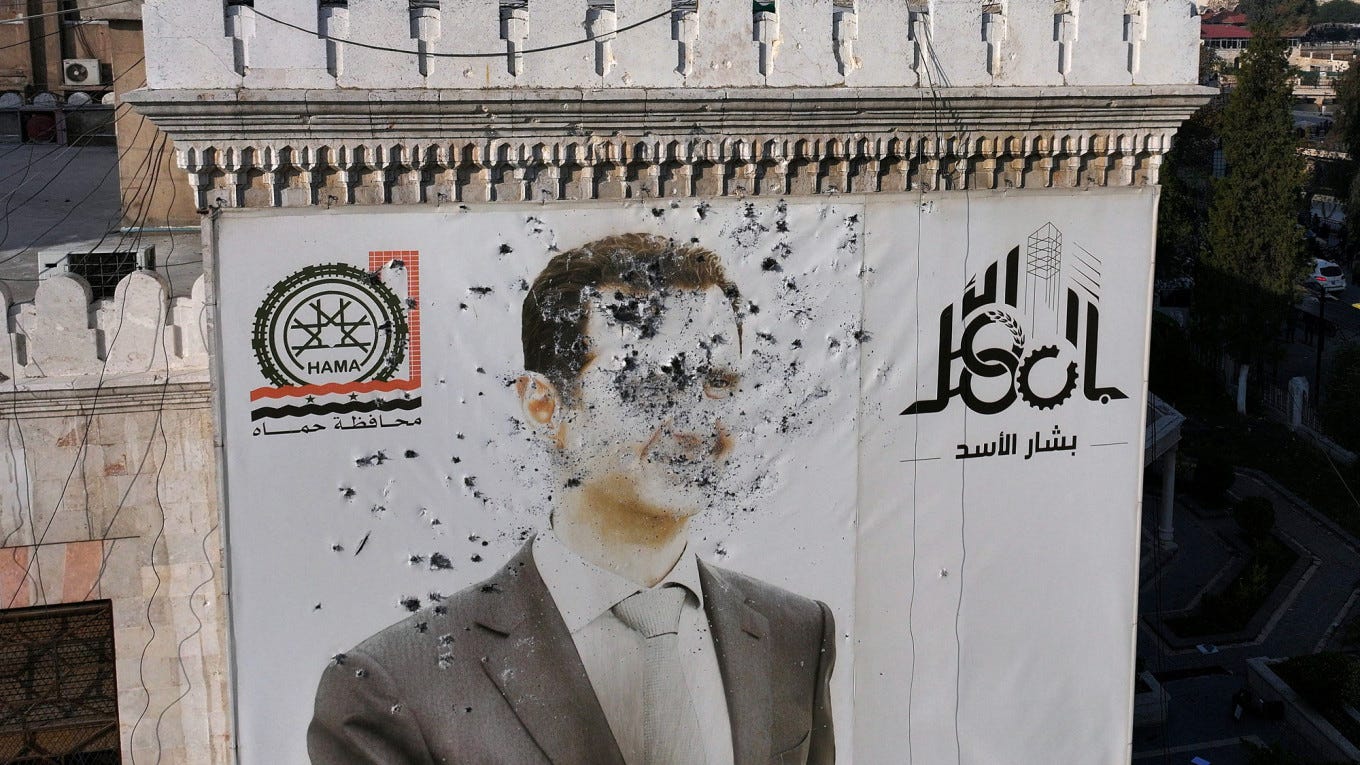Russia's Decline in Syria and the Middle East: Senior Iranian General Blasts Moscow
Cracks Between Iran and Russia Emerge

Iran’s Senior General Criticizes Russia
In a stunning and rare public rebuke, a senior Iranian General, Behrouz Esbati, openly criticized Russia for its role in the collapse of the Assad regime. Speaking at a mosque in Tehran, Esbati accused Moscow of deceiving Iran by failing to target anti-Assad forces effectively and instead bombing wastelands. His remarks, published by the Geneva-based Abdi Media website and reported by The New York Times, were a sharp departure from the usual rhetoric of solidarity between Tehran and Moscow.
“I don’t think that losing Syria is something to be proud of. We suffered a defeat, a very serious defeat. We were dealt a very strong blow,” Esbati stated. His blunt assessment, captured in a recording that emerged publicly on Monday through Iranian media, marked a notable departure from the usual narrative, especially in a country as tightly controlled and repressive as Iran.
The very fact that this recording was allowed to surface strongly indicates that Tehran intended for the message to resonate beyond its borders.
For such a senior figure to openly criticize Russia signals a deliberate move by Iran to make it clear to Moscow: your failures and deception in Syria have been duly noted.
This rare glimpse into the fractures of the Iran-Russia alliance underscores the humiliation both nations face after the fall of Bashar al-Assad’s regime, a leader they spent over a decade propping up with weapons, airstrikes, and ground forces. The fallout from Assad’s defeat continues to ripple through the geopolitical landscape, laying bare the incompetence and limits of Russia’s so-called ‘military might.’
Background: Syrian’s Revolt
In December, the Syrian people achieved the unthinkable: they ousted Bashar al-Assad, the dictator infamous for chemical attacks, and mass graves, while being propped up by Russia, Iran, and Hezbollah. Assad fled to Russia as rebels seized Damascus unopposed, joining other failed Kremlin-backed leaders.
For Moscow, this is a humiliating disaster. After over a decade of bombing cities, aiding war crimes, and spending billions propping up Assad, Russia couldn’t stop his regime’s collapse. Its intelligence failed to detect the rebel offensive, and its military, yet again, proved incompetent.
Adding to the humiliation, Russia had to abandon its military bases in Syria—once symbols of dominance, now monuments to failure.
Furthermore, the new Syrian authorities this week blocked a Russian evacuation vessel from entering the Tartus port. The sanctioned Sparta II vessel, which departed Baltiysk, Russia on December 11 and reached the Syrian coast by January 5, has been drifting near Tartus for over four days without port access, reportedly due to a denial of permission from Syrian authorities.
Meanwhile, its allies, Hezbollah and Iran, have also been significantly weakened, with much of Hezbollah’s leadership eliminated by Israeli operations and Iran left weakened.
Iran’s Reckoning
Esbati’s criticisms extended beyond Russia’s actions in Syria, highlighting deepening tensions within the so-called “axis of resistance.”
He revealed that Russia allegedly “turned off key radar systems,” allowing Israel’s strikes on Iranian-linked sites in Syria to go unopposed.
Esbati also pointed out that Assad's refusal to “open a front against Israel” after the October 7, 2023, Hamas attack further strained Iran's relationship with Syria, leaving Tehran increasingly isolated.
Despite these challenges, Esbati vowed that Iran would continue its operations in Syria, pledging to form “resistance cells” to counter its adversaries.
The Wider Fallout: Russia’s Global Humiliation
Russia’s failure in Syria isn’t just a regional embarrassment—it’s a global one. Moscow’s defeat mirrors its struggles in Ukraine, where its forces have been bogged down since the full-scale invasion. Iran has been supplying Russia with drones and weapons for its genocidal war in Ukraine, only to watch Moscow’s influence crumble in the Middle East.
The irony is stark: Russia, which positions itself as a defender of allies and a great ‘military power,’ now finds itself having strained relations with its allies, as yet another of its partners wakes up to the fact that Russia cannot be trusted or counted on. The question remains—will Iran continue to supply Russia with weapons?
Iran, too, faces a reckoning. Its alliance with Russia forged out of a shared disdain for the West, has yielded nothing but deception and a loss of regional influence. Esbati’s revelations expose a relationship built on convenience rather than trust. The general’s public criticism is not merely a rebuke of Moscow—it’s an acknowledgment of the fractures in their alliance.
Conclusion
The fall of Assad’s regime marks a turning point for both Russia and Iran. For Moscow, it’s a reminder of its waning influence and the limits of its military. For Tehran, it’s a harsh lesson in the perils of trusting an unreliable ally. As the dust settles over Damascus, one thing is clear: the humiliation for Russia and Iran has only just begun.
It also serves as a stark reminder that authoritarian regimes do not have true alliances; they are united by a shared goal of undermining the global order but are ultimately mired in betrayal, self-interest, and the abandonment of their allies when they are no longer deemed useful.
A Global Alliance Against Authoritarianism: Syrians and Ukrainians Stand Together
First, I want to congratulate the Syrian people for their hard-won and long-sought victory in toppling the brutal Assad regime. After decades of unspeakable suffering, devastation, and horrors, Assad has fled to Russia, marking a crucial moment in the long struggle for freedom and justice in Syria. This is not just a victory for Syria but a beacon of ho…






You know, if we leaned in hard to support the Ukraine, I could see Russia oozing away with the level of pain they have to be facing. But Trump will very likely provide a lifeline at this inflection moment. And, sadly, I don't see Europe stepping in to take up the slack. I hope I'm proven wrong.
This is why we need to keep the pressure on Putin. Back off now and he will simply regroup, and carry on.